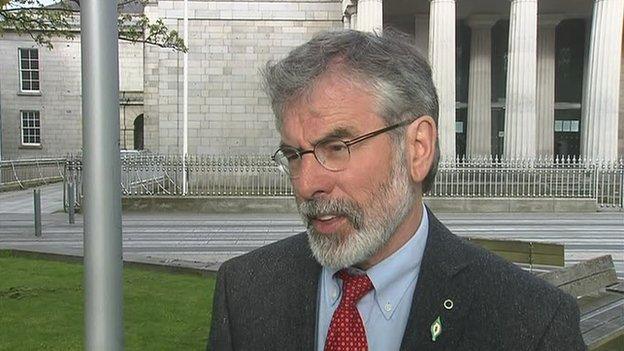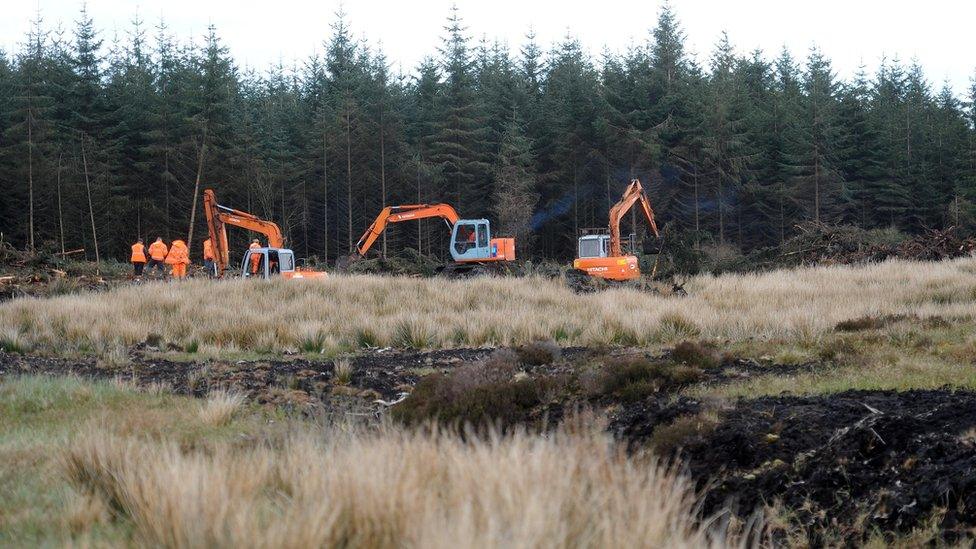Gerry Adams denies McConville son 'backlash threat'
- Published
Michael McConville: "These have been difficult days for the McConville family"
A son of Jean McConville has said Sinn Féin leader Gerry Adams warned him several years ago there would be a "backlash" if he released the names of those he believed killed her.
Michael McConville told the BBC he took Mr Adams' remarks "as a threat".
Asked about Mr McConville's allegation, Mr Adams said: "I didn't say that."
He was released without charge on Sunday after being questioned for four days about the 1972 killing.
The Sinn Féin president claimed there was a "sustained, malicious, untruthful campaign" against him.
It is believed police had wanted to charge Mr Adams with IRA membership.
It is likely that police would have considered such a charge before he was released on Sunday night, but did not have sufficient evidence for a reasonable prospect of prosecution.
Jean McConville, a 37-year-old widow and mother-of-10, was abducted from her Belfast home, shot and secretly buried. Her body was found on a beach in County Louth in 2003.
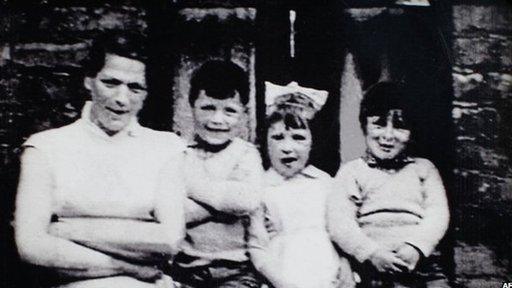
Jean McConville, a widowed mother-of-10, was abducted and murdered by the IRA in December 1972
She was kidnapped from her home in Divis Flats in west Belfast in front of her children after being wrongly accused of being an informer for the British Army.
Her son Michael said his family would fight "to the bitter end" for justice.
He said he had met Mr Adams around the time that the then Northern Ireland Police Ombudsman Nuala O'Loan was drawing up a report that would go on to dismiss claims Mrs McConville was an informer.
Mr McConville said: "Gerry Adams says to me, 'Michael, you are getting a letter of support from the republican people'.
"He says 'if you release the names I hope you are ready for the backlash' - I took it as a threat."
Mr Adams denied making such a comment.
"If Michael McConville wants to give names, he should do so - that's entirely his right," he said.
Gerry Adams: "I have never dissociated myself from the IRA and I never will... The IRA is gone. It is finished"
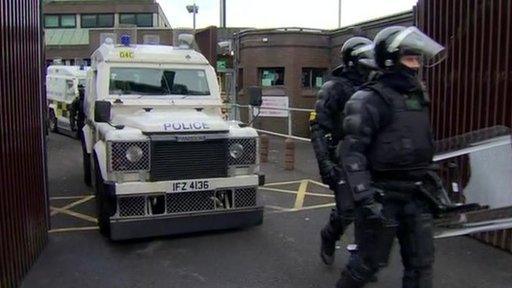
Police used a decoy convoy, then took Mr Adams out by a different exit
Mr Adams, the former MP for West Belfast and current representative for County Louth in the Irish parliament, presented himself for interview by prior arrangement with detectives on Wednesday night.
He was then arrested under the terrorism act for questioning about the IRA murder of Mrs McConville.
BBC News understands there was insufficient evidence to charge Mr Adams with any offence.
The Sinn Fein president was questioned for four days in connection with the murder of Jean McConville and membership of the IRA.
He has strongly denied all those allegations.
Michael McConville: "I took Gerry Adams' warning as a threat"
A file will be sent to the public prosecution service in Northern Ireland later this week but it is thought that unless significant new evidence comes to light, he will not face any charge.
Speaking at a news conference in Belfast following his release, Mr Adams said he had contacted Northern Ireland police two months ago about the McConville case.
He questioned the timing of his arrest in the middle of an election campaign and claimed they could have used discretion rather than "pernicious, coercive legislation" to deal with the matter.
He again said he was innocent of any involvement in Mrs McConville's murder.
He said Sinn Féin remained fully committed to the political process in Northern Ireland. "The IRA is gone, it's finished," he said.
"I want to make it clear that I support the PSNI."
Gerry Adams left in a convoy that exited the rear of Antrim police station, as Jon Brain reports
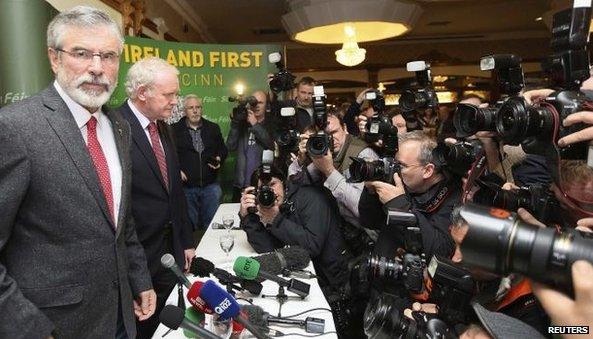
Gerry Adams held a news conference shortly after he was released
Northern Ireland Justice Minister David Ford said he "saw no reason" why Mr Adams' release without charge would damage confidence in the police.
"With the way that Northern Ireland politics operates, there is never a good time to do anything - if it had been before Christmas it would have been the Haass talks; as soon as the election campaign is over, people would be talking about a difficult marching season," said the Alliance Party leader.
"You could always produce an excuse for the police not to do their duty at any time."
Evidence gathered
The decision to release Mr Adams means that prosecution lawyers will decide if charges will be brought.
The file sent by the police to the Public Prosecution Service (PPS) will detail the evidence gathered.
It will be up to PPS lawyers to decide if there is enough evidence to bring any charges and what those charges would be.
The test for prosecution is met if there is sufficient evidence that can be admitted in court to provide a reasonable prospect of conviction. Lawyers must also decide if the prosecution is required in the public interest.
It could take some time for police to prepare the file for the PPS, with prosecutors then taking a further period to assess whatever evidence is presented.
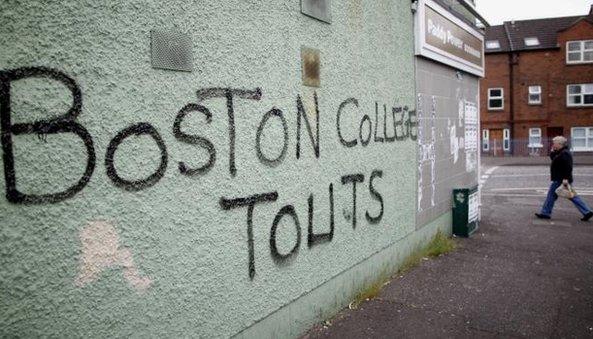
Graffiti about the Boston College project appeared in west Belfast
Meanwhile, one of Mrs McConville's daughters, Helen McKendry, has said she is hopeful that the family will raise the money to take a civil case against the Sinn Fein president for the murder of her mother.
Last month, Ivor Bell, 77, a leader in the Provisional IRA in the 1970s, was charged with aiding and abetting the murder, and there have also been a number of other arrests recently.
The case against Mr Bell is based on an interview he allegedly gave to researchers at Boston College in the US.
The Boston College tapes are a series of candid, confessional interviews with former loyalist and republican paramilitaries, designed to be an oral history of the Troubles.
One of the academics involved at the outset of the project said it had been "a car crash".
Lord Bew of Queen's University, Belfast, said: "I think that one of the sad things is that, first of all most importantly, not one whit of improvement has occurred for those who have suffered during the Troubles.
"Academically, there is a freeze now around all similar projects and that has to be regretted."
- Published4 May 2014
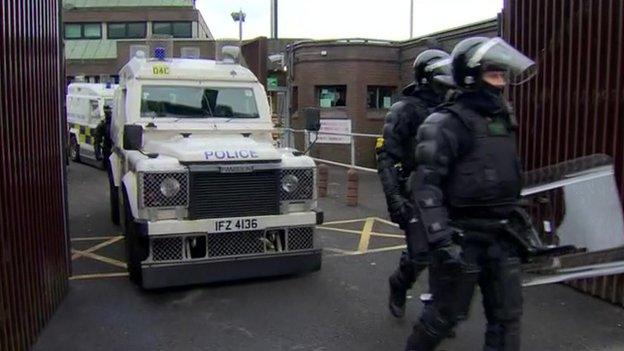
- Published4 May 2014
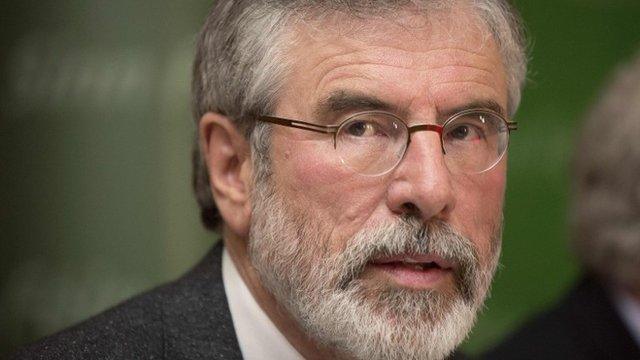
- Published4 May 2014
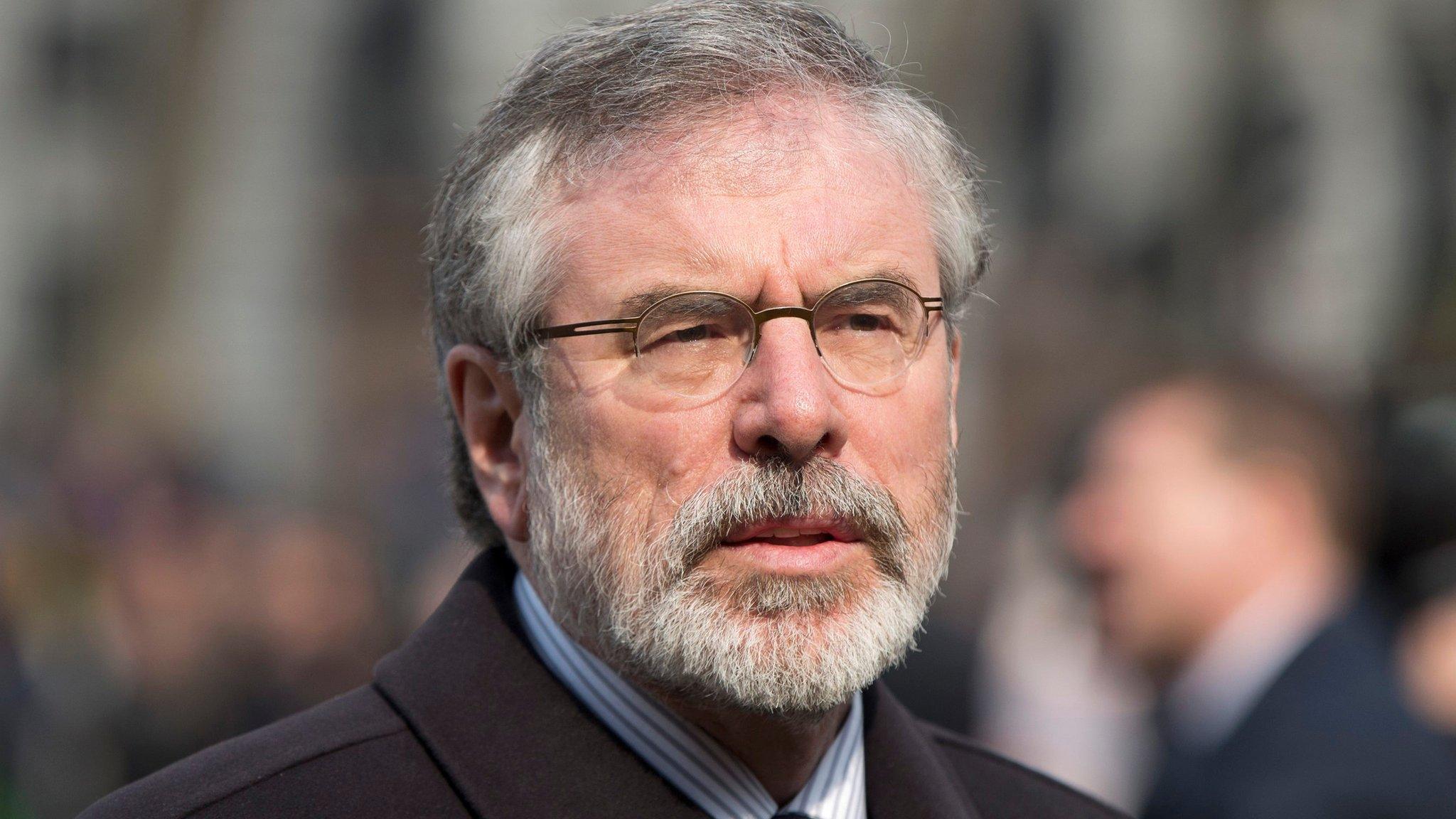
- Published3 May 2014
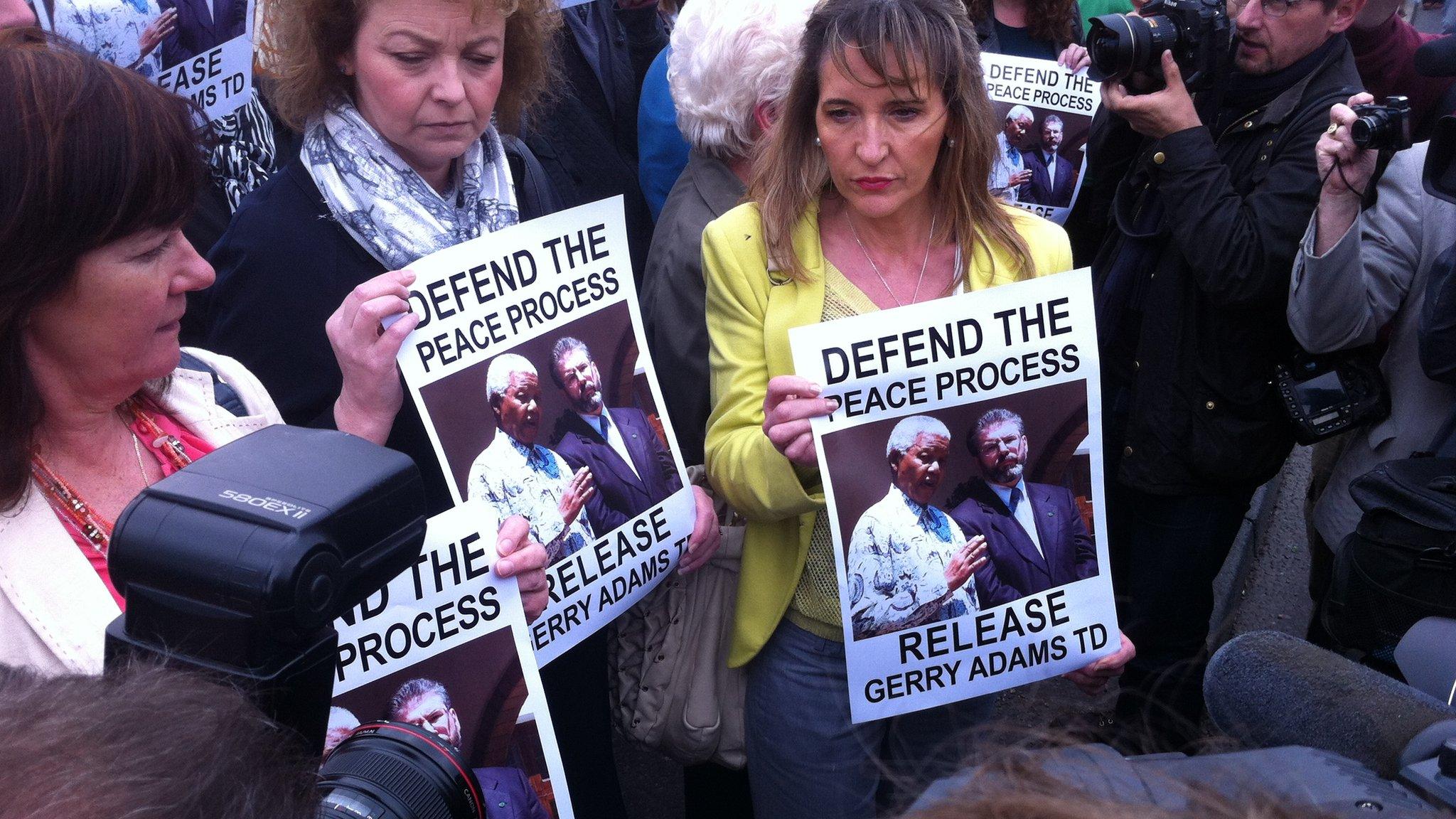
- Published14 October 2019
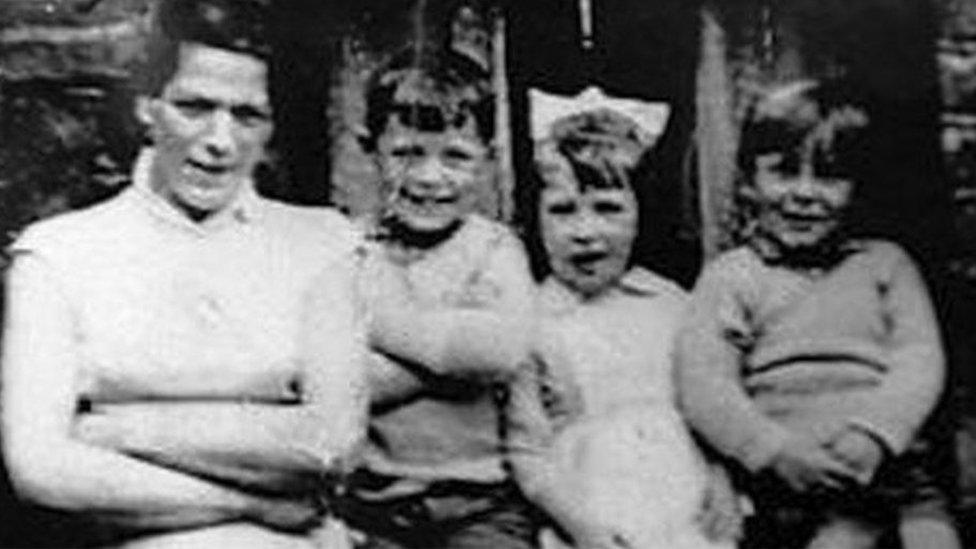
- Published2 May 2014
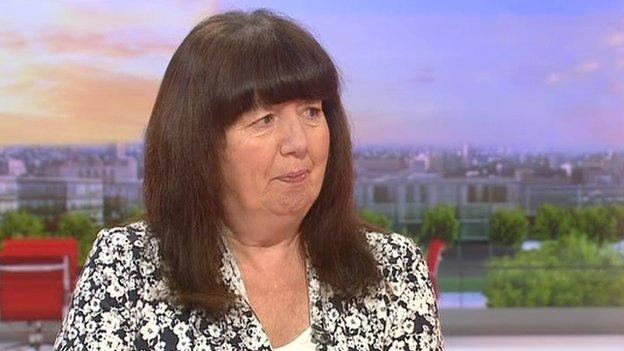
- Published2 May 2014

- Published20 November 2017
